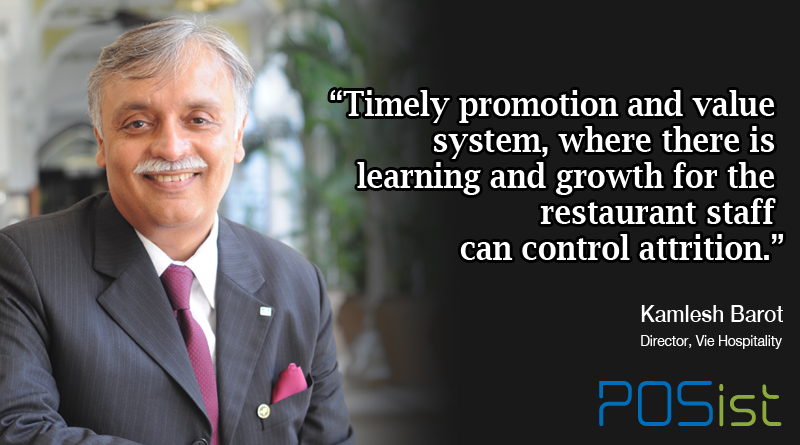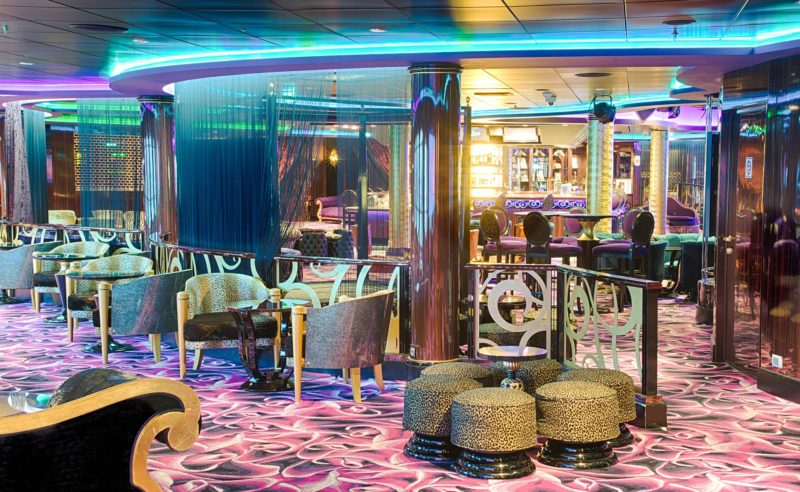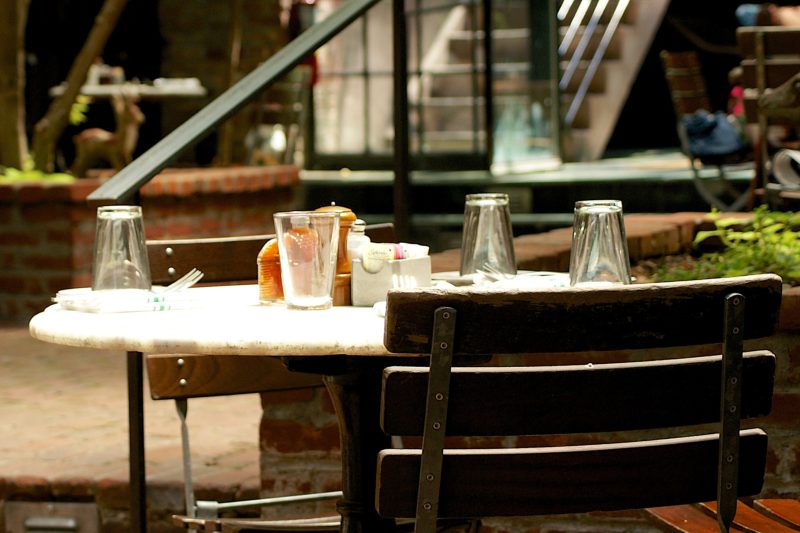With more than three decades of experience, Kamlesh Barot, Director of VIE Hospitality has been an integral part of the restaurant industry. He has played a major role in maintaining the dialogue with the government on various industry issues. He has been the President of Federation of Hotel and Restaurant Associations of India – FHRAI and President of Hotel and Restaurant Association (Western Region). He is the man behind unique new concept restaurants such as the Rajdhani and Revival brand.
Candid Conversation with Kamlesh Barot
In a recent interaction with The Restaurant Times by Posist, Kamlesh shared his views and insights on business expansion in the Foodservice industry, challenges, and more. Edited Excerpts…
Posist: Post Rajdhani and Revival, what are the new concepts you are presently working on?
Kamlesh Barot: From the last thirty-three years we had been concentrating on two separate verticals; La carte, and what we call as the Thali concept. Both were running as two parallel businesses. In the last two years, however, we merged both the concepts, giving our guests the freedom to choose either from the La carte or Thali. Initially, Rajdhani had a Gujarati Thali concept, which worked well for a few years until we expanded in the North India and South India, and abroad. Abroad, people limited the Gujarati Thali as an Indian concept instead of identifying it as Indian cuisine. That’s when we decided to introduce Maharashtrian and Gujarati Thali. We liquidated Rajdhani and started Revival as we realized that both the concepts needed to be merged together.
Posist: Rajdhani has been operational in many countries apart from India. What is your experience while working in different parts of the world?
Kamlesh Barot: There is a lot of difference because you look at it, right from the operations to the execution of the concept, everything revolves around what we learn in the catering college and what we teach our students here. The theory is more practised abroad than in India. In India, it mostly revolves around value for money. Internationally, hygiene, staff training etc are much higher. Visa laws, Labour Laws and currency exchange are all in place when you go international. However, there are more challenges as well.
There are more formalities that need to be taken care of when you do business in the developed countries.
Formalities in India are much lesser. The only hurdle in running a restaurant in India is the government policies monitoring business. It becomes tough to expand your restaurant business in India at a fast pace. There is more bureaucracy here, while the response time abroad is much faster.
Kamlesh Barot: Most of the time restaurant business is not done out of passion, and merely done more as a cash-cow. When restaurateurs try exploiting staff as just a resource and not as a talent, then the problem starts. Most of the time restaurant owners poach staff from other restaurants. They give them a huge raise to take the offer. This results in high attrition rate. It also rises because there is no incentives or growth plan for employees to stay back. Timely promotion and value systems, where there are learning and growth prospects can arrest attrition issues. The employees should know if they stick around, they would be able to grow in their career.
Job enrichment is the key to reducing the attrition.
Posist: There are a lot of new age entrepreneurs who want to grow fast. What are your views on restaurant expansion? When should one think of opening new outlets?
Kamlesh Barot: According to me, you should think ahead of opening new outlets once the organic expansion starts happening. The restaurateur or hotelier should have enough technical knowledge to copy the system and processes of the first outlet’s success. The process should be robust enough and have no loopholes in operations. That is when one should think of duplicating or opening the new outlet.
We sold the company which has 65 outlets, most of them following the franchising route. Also, we advised all our franchise owners to acquire an old restaurant which has been closed. This is because the infrastructure is in place already; you just need to put other things in place. That’s one way to expand. Angel funding and venture funding are also options for restaurant business expansion.
Posist: How do you see foodservice is growing in India? What kind of new trends will come in near future?
Kamlesh Barot: Recently demonetization was a big blow to the industry. Now with that, the growth we were pegging was around 9.6 percent compared to 7.6 percent GDP, which is moving up.
We have brought down the growth target to 7.8 percent growth compared to the previous target of 9.6 percent. Apart from the recent announcement of service charge and the issue created on MRP by media, the government is trying to soft target the industry. We have about 30 percent of organized and 70 percent is unorganized players. The growth is arrested more towards 30 to 40 percent.
Posist: There is a lot of talk on a cashless economy. How do you see it in restaurants? Will it act as the catalyst for growth?
Kamlesh Barot: Going cashless will definitely be a catalyst for growth. Earlier, only 30 percent of business was coming through plastic money. After demonetization, it has turned around. Moreover, most of the unorganized sector would now have to come under the protocol, which will further enhance the size of the industry.
We had already digitized our restaurants and outlets five years back. Our menu, and our way of taking orders, all are digital.
Posist: What are the three traits of a successful restaurant?
Kamlesh Barot: I would say the three essential traits of a successful restaurant would be location, attitude towards the environment and brand, and human capital.
As told to The Restaurant Times by Posist

















